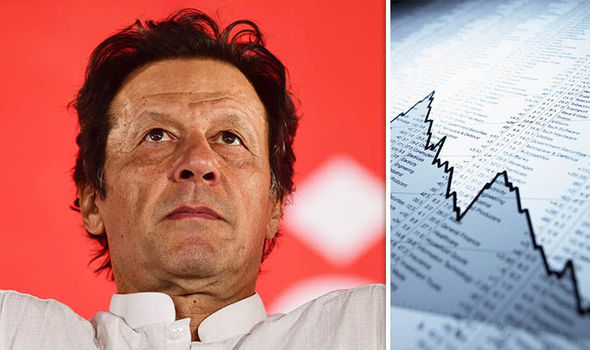
Despite Imran Khan’s proclamations about a ‘Riyasat e Madina’ Pakistan’s economic crises continue unabated and there is no sign that things will improve any time soon. Inflation is at an all time high, Pakistan’s debts are compounding, there is no sign that the next installment of the IMF loan will come in any time soon, and economic growth has slowed down.
In a recent twitter thread, Princeton-based Pakistani American economist Atif Mian, lays out in details Pakistan’s current economic woes. Mian had at one time being touted by Imran Khan as his economic advisor only to backtrack on grounds that Mian is Ahmadi.
According to Prof Mian “Pakistan’s economy is not in a good place – per capita income has not risen in 3 years (in fact down slightly) Even over the last 20 years, income per capita has grown at a paltry 1.9%. The core problem? A fundamental imbalance between its anemic supply (domestic productive capacity) and the exaggerated external demand driven by its rentier economy. The fundamental cause of the problem? *A broken economic decision making system.* Those in charge have repeatedly failed to recognize the requirements of a coherent growth strategy for Pakistan.”
Mian elaborates, “A 30 year flawed energy policy that relied on imported fossil fuels and guaranteed $-returns for producers, while the power output was largely used for domestic consumption. How is the electricity payback feasible under this policy? *It was designed to fail* The “circular debt” is nothing more than a manifestation of the fact that Pakistan adopted an unsustainable energy policy. The same is true of many other $-funded “infrastructure” projects. A cornerstone of current govt’s economic policy was “Naya housing” – a promise to build 5M houses. Another example of a growth policy *designed to fail* It is practically impossible to build 5M houses in 5 years. However, deeper issue is that housing is a final good and hence does not help boost productivity, which is what Pakistan desperately needs.”
Next he points out “A credit-fueled housing policy will subtract from growth and put further pressure on balance of payments. Exchange rate and capital account policies continue to be at odds with Pakistan’s growth needs. Earlier regimes actively kept an appreciated ER which discouraged investment in high-productivity export sectors. Unfortunately current regime has also promoted capital account policies that are detrimental for growth. It started with opening of capital account for speculative portfolio investment in government bonds. More recently, capital account has been opened up to actively encourage ex-pat Pakistanis to buy real estate in Pakistan.”
As Mian elaborates, “What growth purpose does such a policy serve? Pakistan already has an out-of-sync housing market with a very high urban land value to income ratio. Encouraging external capital flows into real estate is negative for growth because, (i) it makes the country more expensive to live in, without providing any productivity advantage (ii) builds speculative foreign liabilities that will further destabilize future bop position. I’ll stop at these three examples, but there are many more. For example, regressive taxation system, implementation of IMF conditions, a rent-seeking industrial structure etc. etc.”
Mian concludes, “The bottom line I want to emphasize here is that Pakistan lacks a coherent macro growth strategy, and one that can be followed up by a competent institutional structure. The country needs a functioning nervous system.”
![]()





